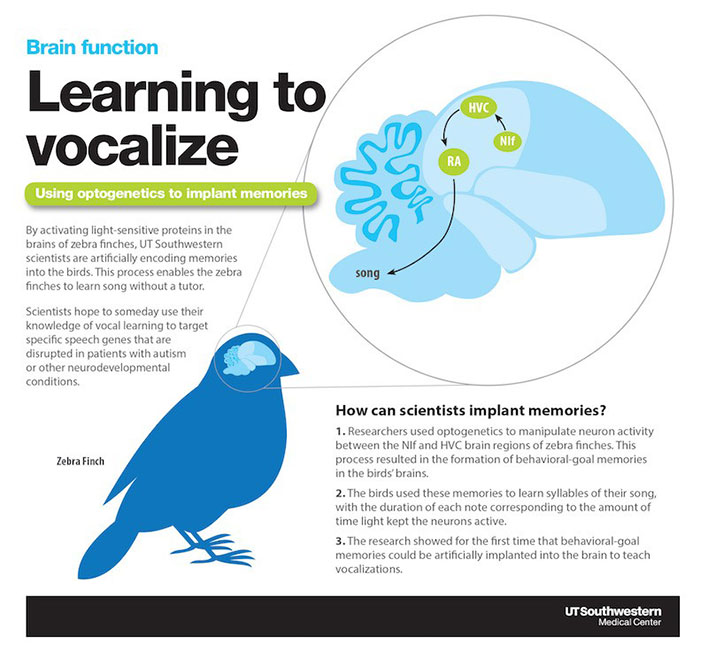Inception: Scientists Have Implanted Memories In Birds To Teach Them New Songs

Scientists at the University of Texas Southwestern have been working with cute little zebra finches over the last few years to unlock the mysteries of speech development. Zebra finches memorize songs that they hear from their fathers. They then pass these songs down to the next generation in their family.
These scientists used optogenetics to teach the zebra finches news songs without the influence from their fathers. Optogenetics relies on light to manipulate brain activity. The scientists would shine lights to activate neurons in the “nucleus interfacialis” (Nif) region of the birds’ brains. The Nif region would then send information to the “high vocal center” (HVC) part of the brain. The HVC region is essential in the learning and creation of bird songs.
Scientists were therefore able to control the birds’ auditory memories. They noted that when they cut off communication between the Nif and HVC, the birds who had not heard the entire song were unable to perform it. Birds who had learned the song before communication was cut off could still repeat it. The scientists plan to research how other information is sent to the HVC and how these connections impact memories and vocal development.

Zebra finches and humans learn speech in a similar manner, but we are still many years away from being able to influence human auditory memories. Dr. Roberts also noted that, “The human brain and the pathways associated with speech and language are immensely more complicated than the songbird’s circuitry.” His team hopes that their research will help us to better understand speech development and aid those with neurodevelopmental conditions.
Other institutions and companies are also working on better understanding human speech development and processing as well. Facebook is currently creating a brain-computer interface (BCI) that could potentially transcribe thoughts into text. The company is currently testing this interface on patients who have undergone brain surgery to treat epilepsy. All of the patients in this study are volunteers; Facebook is testing whether they are able to help patients who have lost speech capabilities to communicate.

